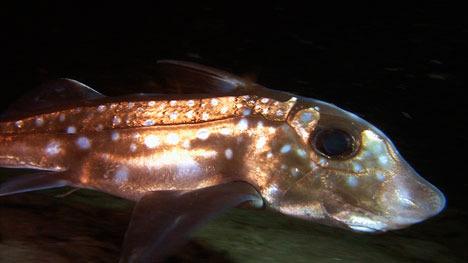He has splashed with seals, whales and giant octopi in the deepest depths of the world’s oceans.
He has seen what swims in the waters of the Amazon Basin, what lurks in the Mediterranean Sea near Mallorca, Spain, in the hidden fjords of Norway, and off the coast of Saudi Arabia in the Red Sea.
In short, this deep diver has been in much of this planet’s water. He even fancies a dip in Holmes Harbor now and again.
Currently, local underwater cinematographer Florian Graner is diving the depths of the Puget Sound for an exciting documentary about the Salish Sea for German television. The Salish stretches from the southern end of Puget Sound northward to Desolation Sound in Canada.
Lucky locals will be able to see some of the footage from “Beneath the Salish Sea: An Underwater Odyssey Through Puget Sound” in high definition video at the Clyde Theatre in Langley. The screening is at 2 p.m. Sunday, Jan. 17.
Graner will be on hand to answer audience questions about the making of the film and the creatures who star in it.
This extraordinary photography features an unusual look at sea life, such as a huge basking shark approaching with its giant mouth agape, a giant octopus walking across the sea floor, the beautiful and unfortunately named ratfish (basically unchanged for the past 150 million to 180 million years), a brightly-colored nudibranch enticing plankton into its mouth like a sea-going version of the Venus flytrap, orcas spy-hopping, seals playing in the gracefully swaying eel grass, and night films that clearly show the profusion of life in the waters of the Sound.
Graner is trained in the use of a specialized piece of equipment called the rebreather, which allows him to go deeper than the usual scuba diver. The rebreather gives him the ability to stay down longer, and get very close to the sea life that he studies.
Graner has a doctorate’s degree in marine biology with a specialty in marine mammals.
In the past 10 years, under the auspices of his company, Sealife Productions while filming for producers such as the BBC, Icon Films and NDR Naturfilm among others, Graner has photographed sharks in Norway, the coral reefs of the Red Sea, otters and spawning squid in California, orcas in the Arctic Ocean, porpoises in Japan, great white sharks in Mexico, gray whales on the Pacific Coast, seals in Germany and rare, mainly unseen, species in the Amazon River and Siberia’s Lake Baikal.
Graner moved his family to Freeland three years ago because, as he said, it seemed like a great place to raise kids and be able to jump into the waters nearby.
“I started diving off Beverly Beach because it’s our home beach and I like to know where I live,” Graner said.
“And I found that there’s amazing stuff living here. I never imagined Holmes Harbor would be so rich.”
The fact that the harbor is teeming with life is something he wants the people of Whidbey to understand.
“With all the negative press about the state of the Sound, people easily resign themselves to thinking that nothing can be done anymore,” he said. “That idea is both wrong and dangerous. There are beautiful and functioning ecosystems in our inland waters. I hope this footage will help people reconnect with them.”
Graner is also doing his part to educate the next generation about the importance of the health of the inland waters.
When he’s not traveling the globe, he does underwater photography for the Whidbey-based nonprofit marine-education organization Service, Education, Adventure (SEA).
“I’ll be working with SEA to produce a documentary series and accompanying DVD that will cover the evolution of the Salish Sea region, the natural history of its watershed above and below the surface, current research and the state and the future of Puget Sound,” he said
“We also aim to set up a Web site that links into the DVD set with background information and teaching tools.”
SEA’s 68-foot steel vessel Indigo will be moored at the Langley Marina and open to the public on Sunday.
SEA partners Scott Ashworth, Chris Burt and Susie Richards will be on hand to explain SEA’s educational programs and how the community can help with efforts to restore the health of the Salish Sea.
Additional information about the group can be found at www.seaeducationadventure.org.
A selection of Graner’s still photographs can be found at www.sealifeproductions.com.
Tickets at the Clyde cost $6 for adults and $4 for seniors and those younger than 12.


